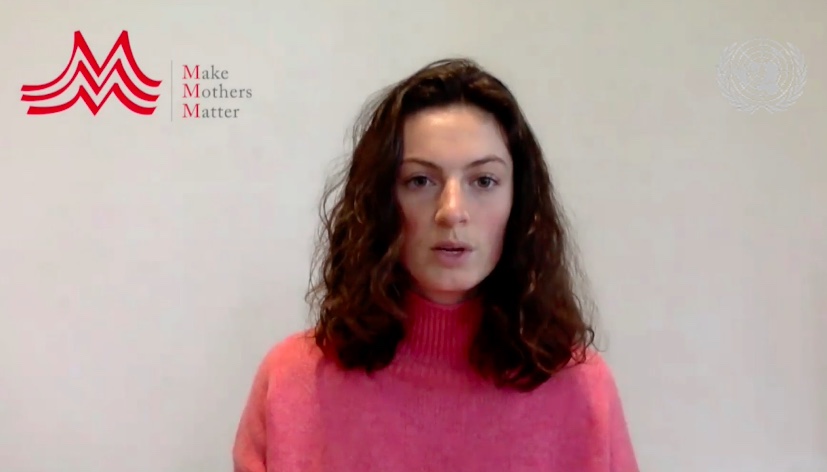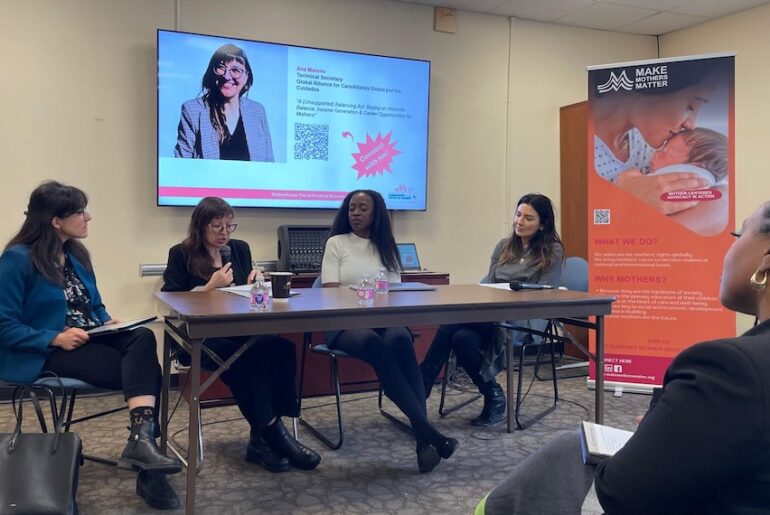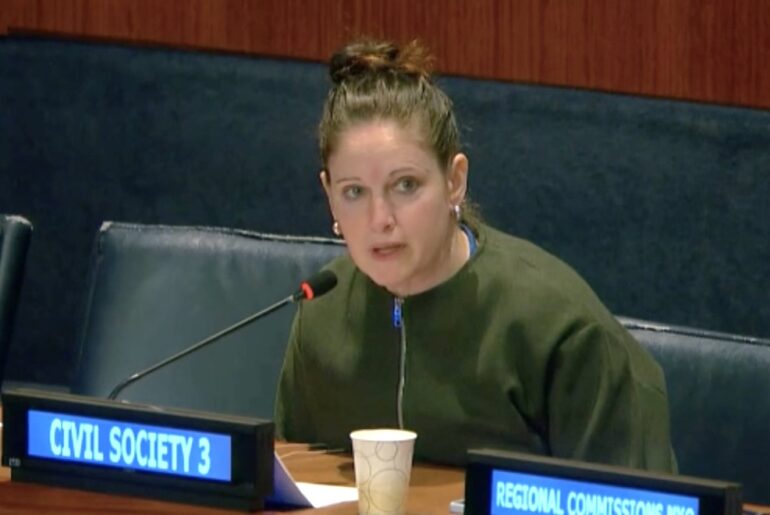Like nature’s vital resources, unpaid care work must not be taken for granted
10.03.23
UN Geneva, Human Rights Council - The dialog following the presentation of the report Women, girls and the right to a clean, healthy and sustainable environment was the opportunity for MMM to reaffirm the urgent need for a systemic transformation of our economic system so that both unpaid care work and natural resources cease to be considered as free and infinite resources. We called for a rapid transformation to a wellbeing economy - in service of life.

The following is the full statement delivered by our UN representative, Constance Nothomb, during the interactive dialog with the UN Special Rapporteur, on the occasion of the presentation of his report on Women, girls and the right to a clean, healthy and sustainable environment (A/HRC/52/33)
We supports the conclusion of today’s report: that only transformative changes can achieve a just and sustainable future where everyone, including women and girls, enjoy the right to a clean, healthy, and sustainable environment.
Problems must be tackled from their source, of which a major one is the very own nature of our current economic system.

To favour economic growth over environmental degradation and public health concerns is not sustainable nor is it equitable. By disregarding the unpaid work women and girls undertake daily to provide care for those around them, we also disregard the risks and injustice they face. As such, we neglect some of their most fundamental rights.
This is especially true for mothers.
Like nature’s provision of vital resources, women’s disproportionate unpaid labour and contribution to the care economy cannot, and should not, be taken for granted. Care must be prioritized as a key component of our economic system. Economies depend on it, whether it be caring for children, older persons, or the environment.
Investing in care work is investing in the future.
This is what we are calling for today. For member states to collectively move beyond GDP, and see the transformation into wellbeing economies, as an essential measure for all to enjoy their right to a clean, healthy, and sustainable environment.
MMM oral statement for download
The interactive dialog took place on 8 and 9 March 2023 during the 52nd session of the UN Human Rights Council.
Time Poverty and the Motherhood Penalty
Unveiling Economic and Social Injustices
09.07.24
Mothers play an essential role in families by ensuring their loved ones are nourished, educated, and healthy, but their unpaid care work often leads to economic and social injustices, known
Envisioning care as a common thread to global crises
29.07.24
UN New York - Our virtual HLPF side-event brought together experts to shed light on how the various global crises we face (in particular climate change and other environmental crises,
We call for multi-stakeholder approach to recognise and support unpaid care work
21.07.24
UN New York - Participating in the meeting of the UN Economic and Social Council (ECOSOC) on care and support systems, MMM reaffirmed the principle of co-responsibility, which should underpin








